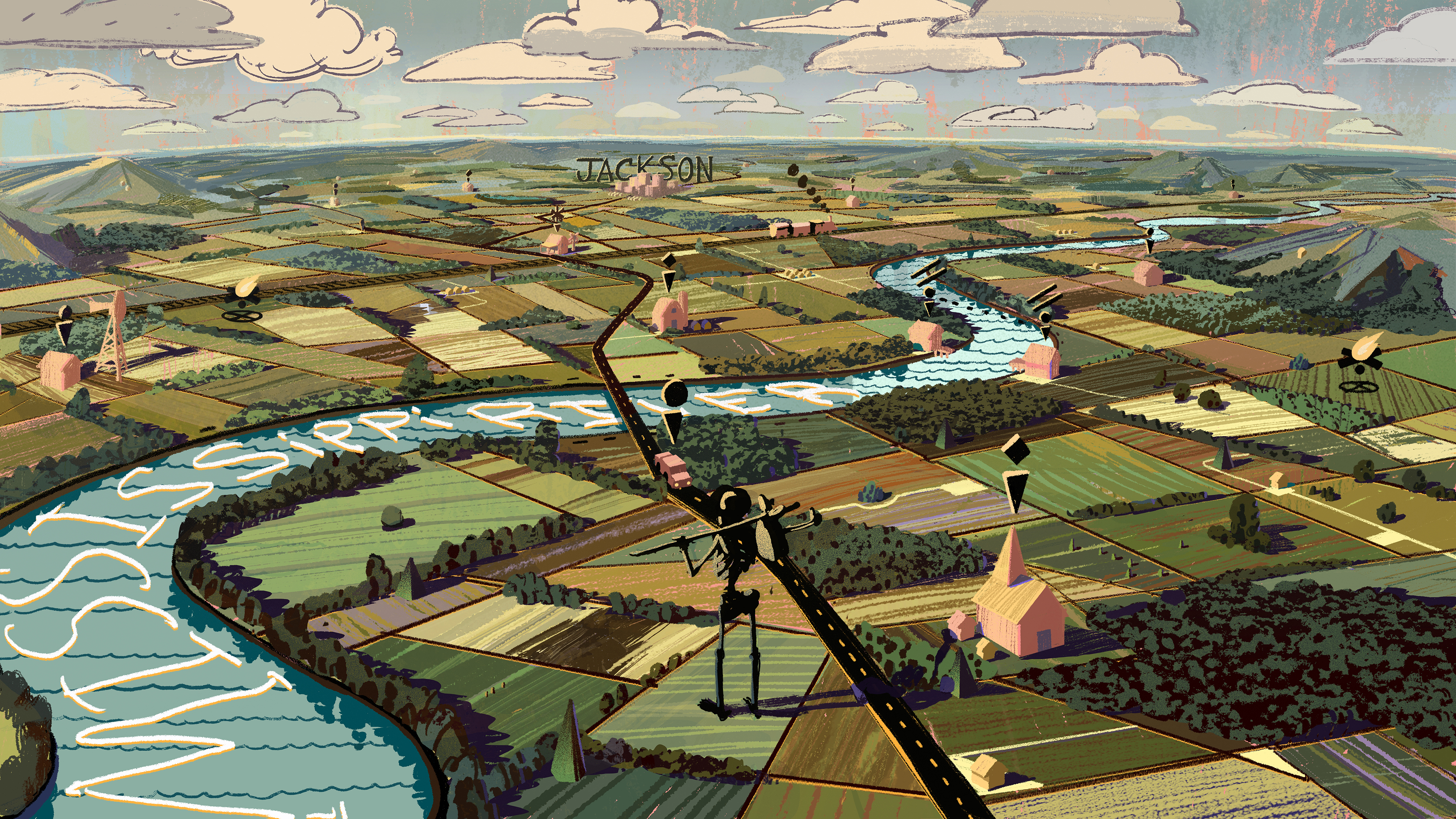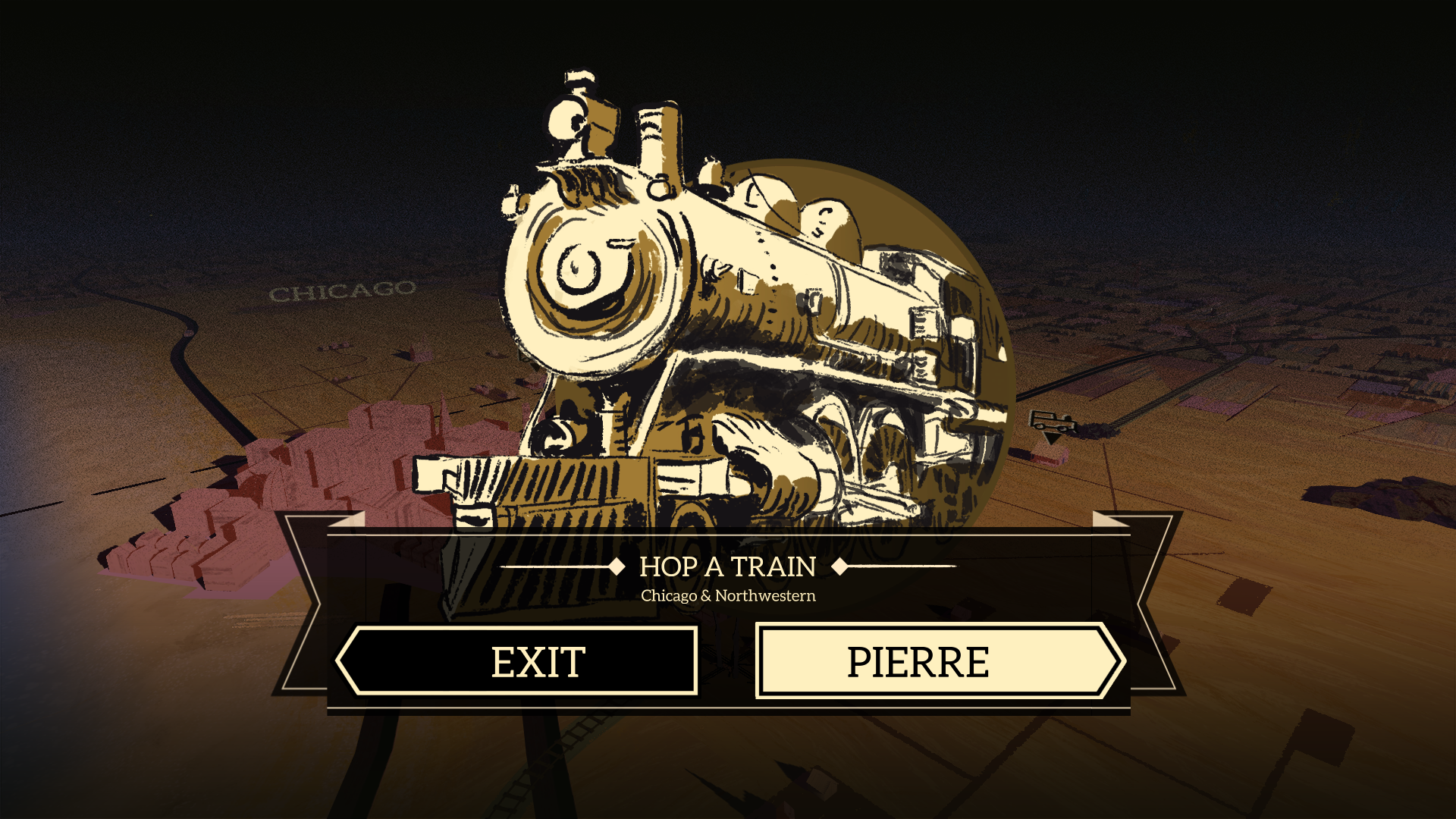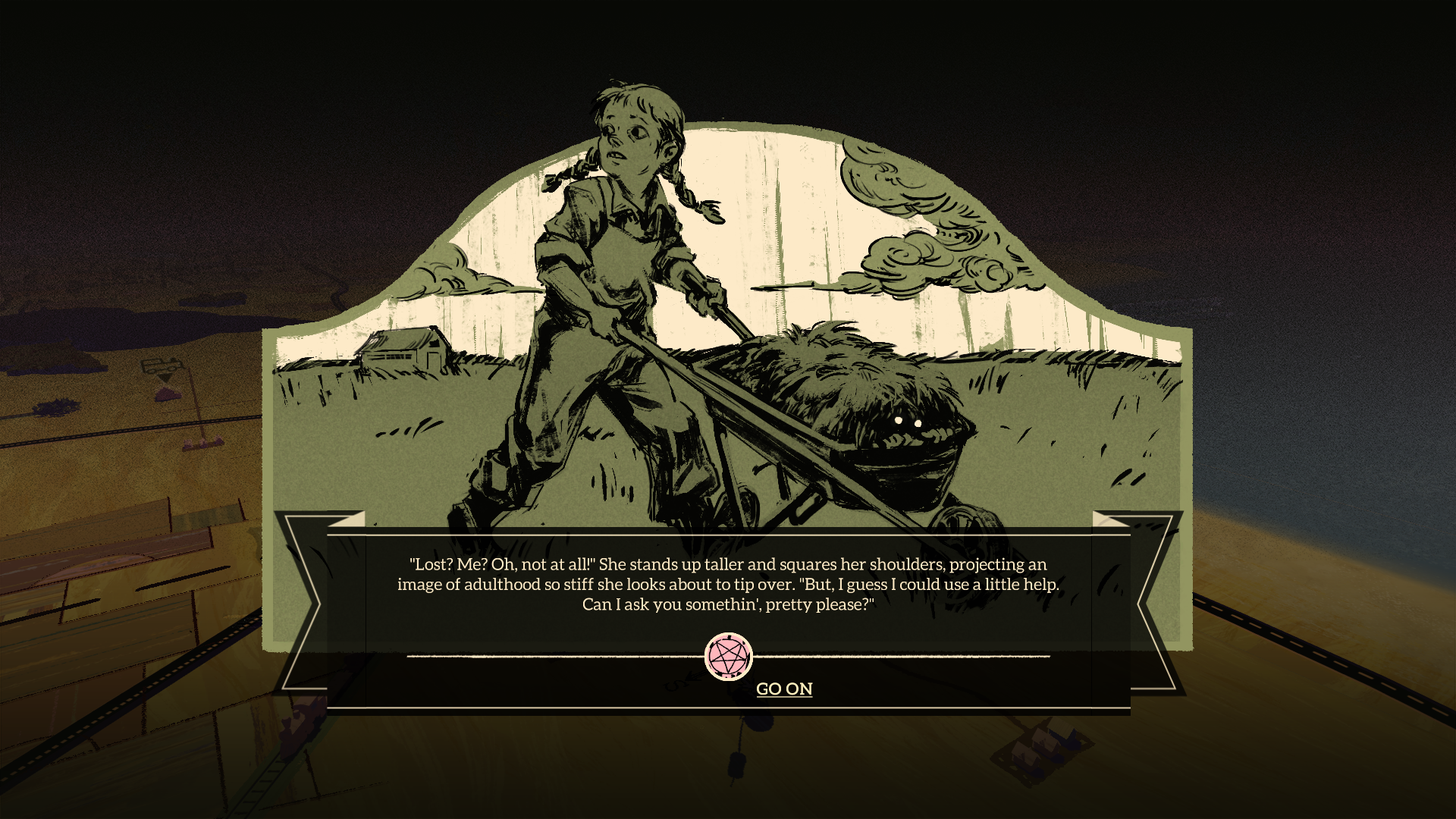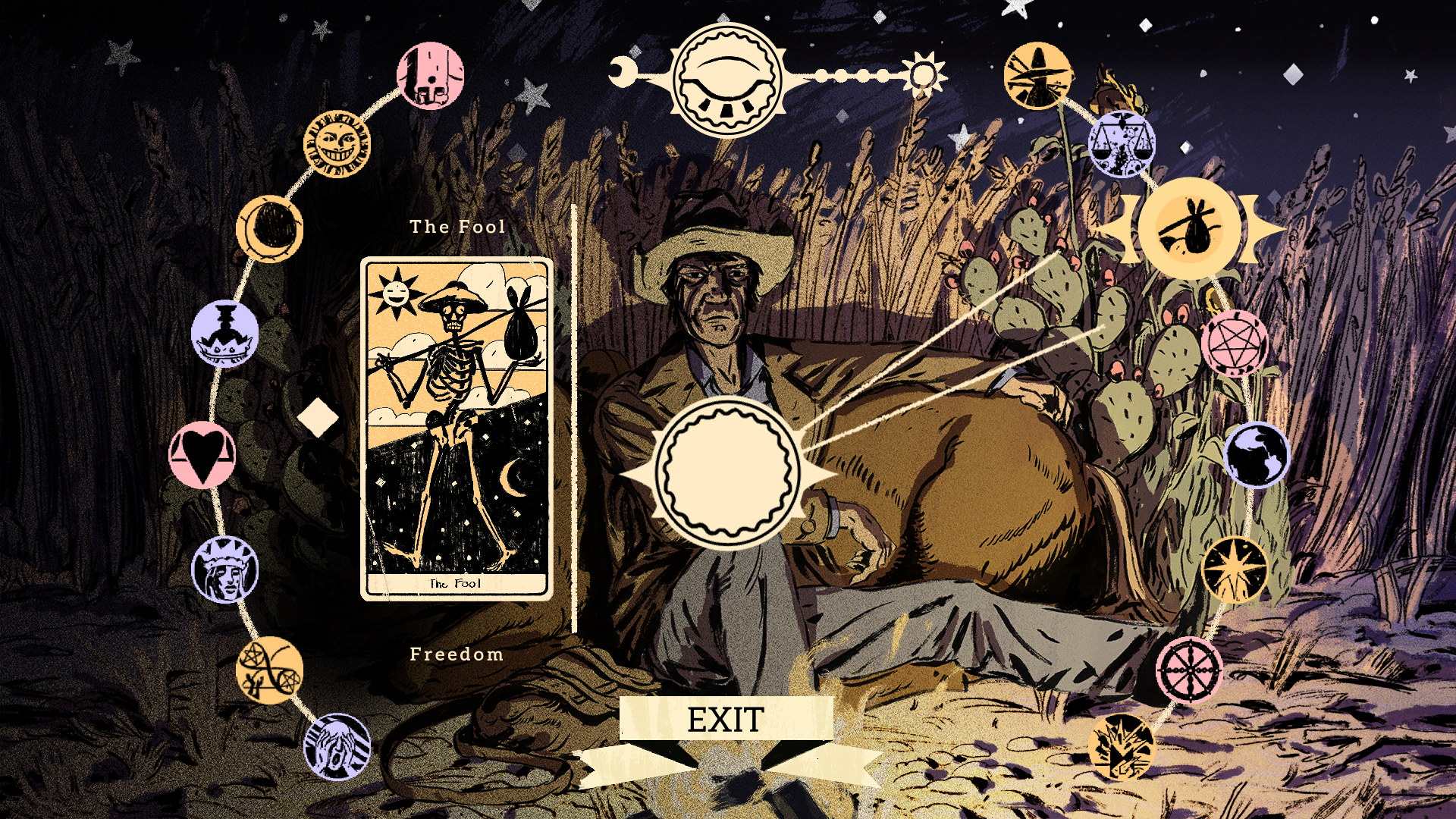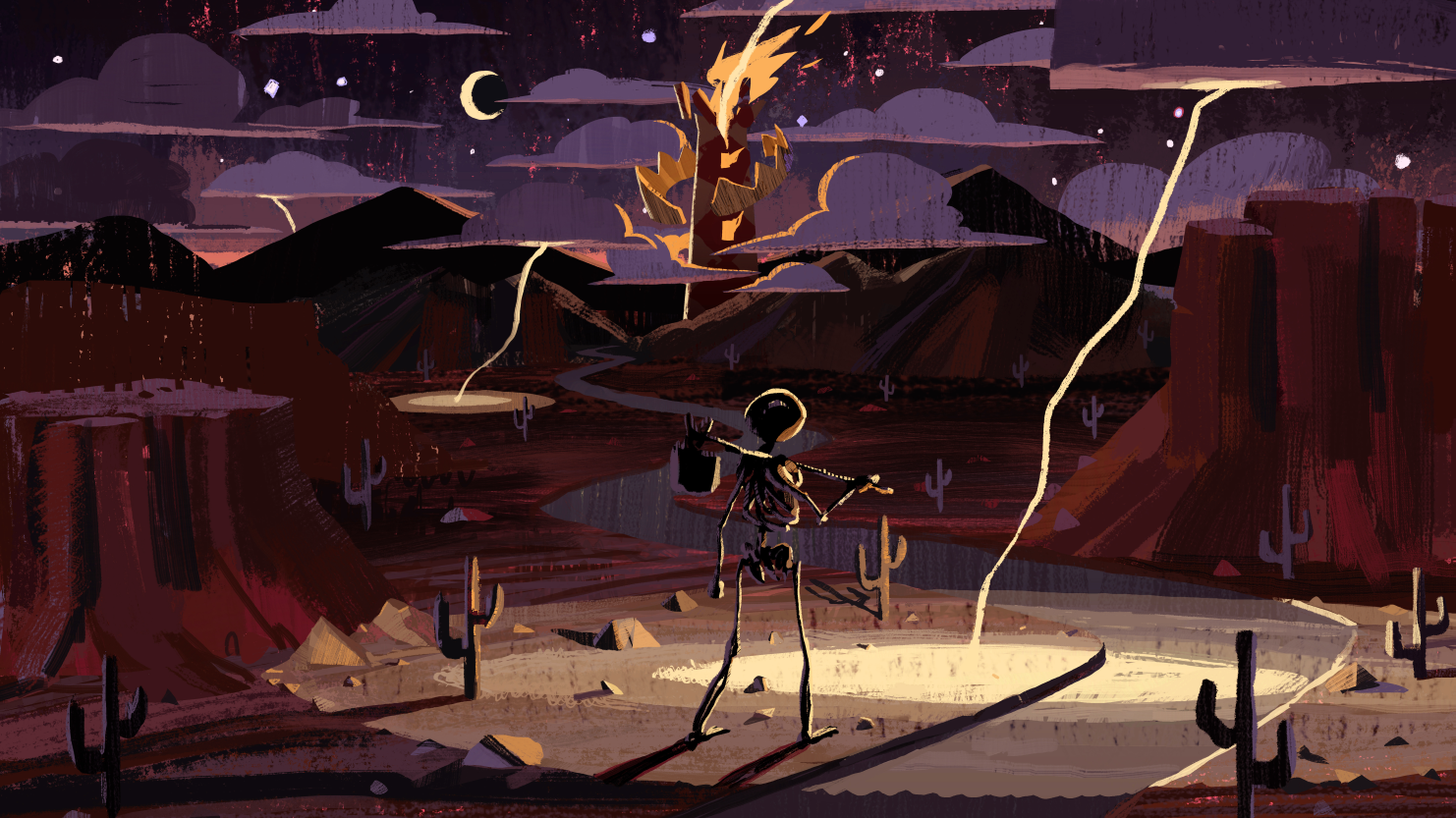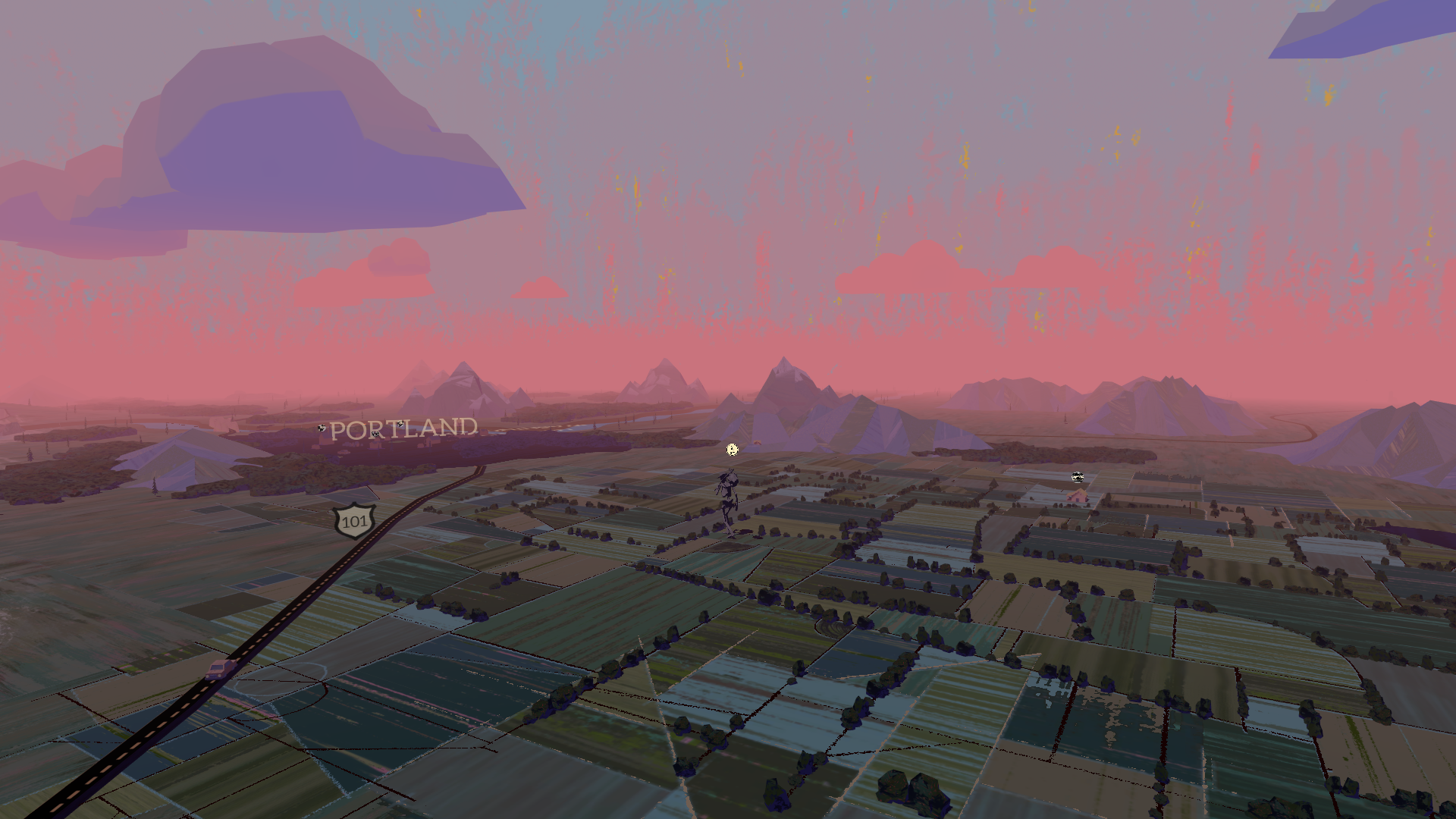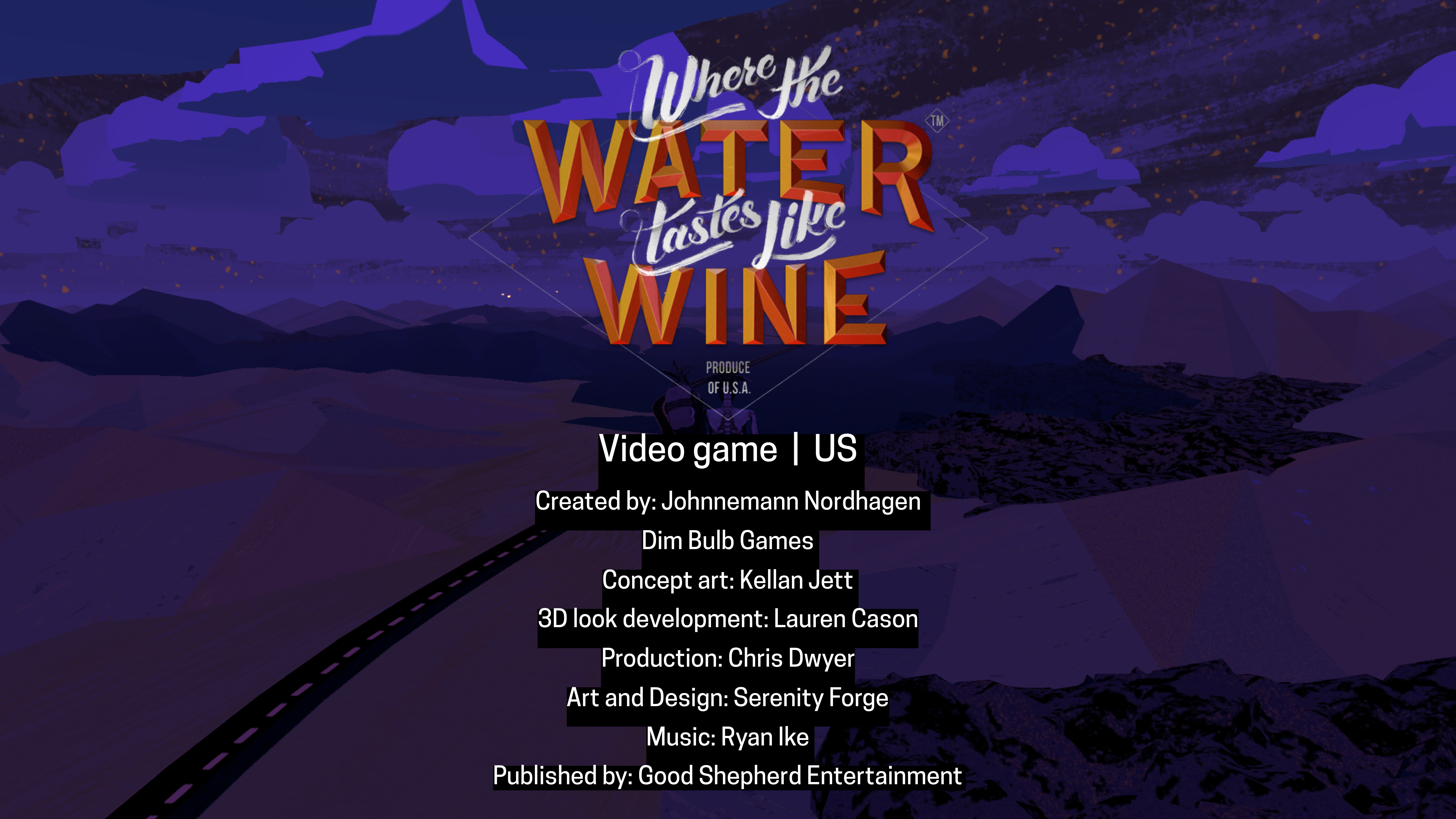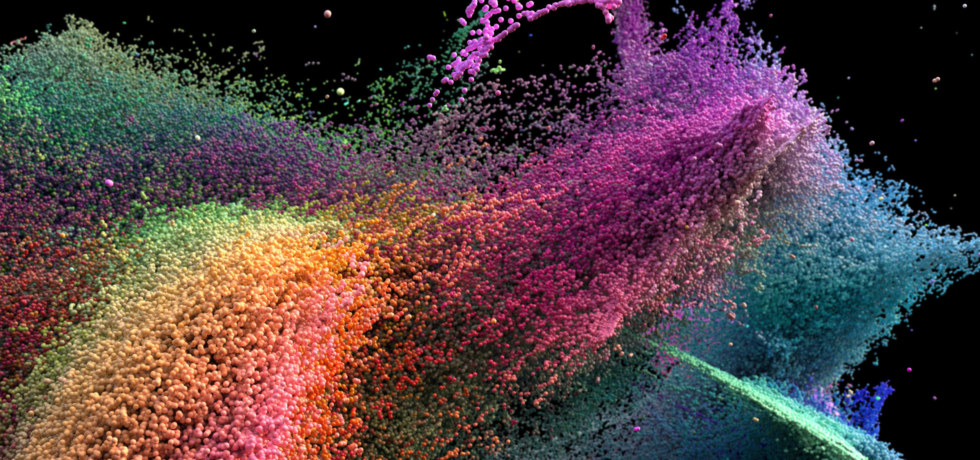Where the Water Tastes Like Wine
Where the Water Tastes Like Wine is a game about traveling, sharing stories, and surviving manifest destiny. Players wander through the United States — and through a century of history — to meet a variety of people, each with their own stories to tell.
Through these interactions, players will be able to collect unique stories which can then be re-told to unlock new interactions. In this way the in-game stories themselves act as a currency to progress through the game, and it’s up to the player to pair the right story with the unique needs of each of the characters that you will encounter throughout your travels. Only through these right pairings will characters reveal their true selves and bestow you with the most powerful stories, the true ones which reveal something about their own lives. In Where The Water Tastes Like Wine, stories organically take on a life of their own as they grow larger and transform as they’re told and re-told.
— Dim Bulb Games
Johnnemann Nordhagen is the founder of the independent developer Dim Bulb Games. He had previously worked at Sony R&D and on the BioShock series at 2K Games before going leaving with two colleagues to start The Fullbright Company in Portland, Oregon. Their first release was Gone Home, a narrative-driven mystery game about a young woman who returns to her family after spending time abroad and finds the house deserted.
After Gone Home shipped, Nordhagen traveled the world for several months by train and boat, meeting other people and swapping stories with them. He was on a train in Siberia when he decided to make a game from the experience, one that would use American roots music and a patchwork of stories to create a bleak yet fantastical vision of America.
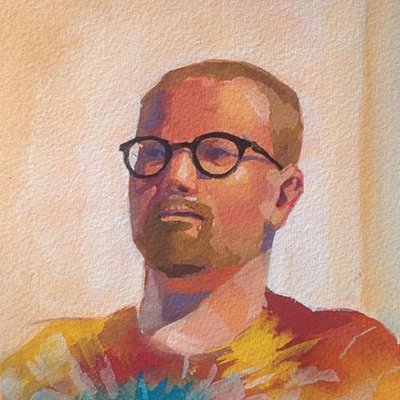
ASK THE CREATOR
Why this? Why Now?
Johnnemann Nordhagen: This game is an investigation of a number of things that are interesting to me: folk culture, especially folk music, storytelling, and the promise of America versus the reality. I started this work at a time when I was really questioning whether the US was living up to its values, and whether the American Dream was truly available to everyone, or attainable at all. And when I determined it wasn’t, what could change that. Since that time, that question has only become more pronounced.
Was there something you were surprised to learn as you were making it?
JN: I was incredibly delighted at the huge variety of folk stories that come from this land — every square inch of this country has a tale to tell, it seems.
What was the most challenging aspect for you?
JN: This game turned out to be much larger and more sprawling than I intended. It grew and grew, trying to encompass more and more aspects of American stories and America itself. We didn’t end up getting everything we wanted in, but it is still far too large and ambitious!
“The player is the story collector. You take on the job of the personification of folklore after losing a poker game with the wrong entity and thus it’s your responsibility to pass these stories from place to place. Nordhagen refers to it as a Greek myth/Terry Pratchett kind of idea – ‘there’s an actual person responsible for doing this, for spreading tales and watching them grow. And also that this is a necessary function, so that the Idea of America can persist, through these stories. Basically that America is more a myth than anything else, and what kind of myth it is is determined by the stories you’re spreading.’”
